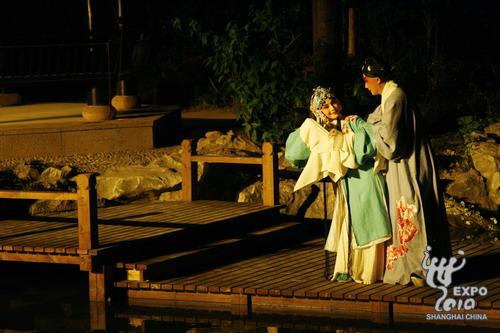China's version of 'Romeo and Juliet' refreshed
 |
| A modern interpretation of one of China's most traditional Kunqu Opera classics, "The Peony Pavilion," made its debut at Kezhi Garden in Zhujiajiao watertown on Saturday night. |
A modern interpretation of one of China's most traditional Kunqu Opera classics, "The Peony Pavilion," made its debut at Kezhi Garden in Zhujiajiao watertown on Saturday night.
Dubbed China's very own "Romeo and Juliet," producers Tan Dun and Zhang Jun aim to incorporate the paradoxes of traditional meets contemporary, East meets West in this new version by bringing "The Peony Pavilion" away from the stage and into the natural setting of Kezhi Garden.
Just like the new interpretation of the opera, Kezhi Garden is a combination of Chinese and Western influences and integrates both traditional and modern garden styles.
Born during the Ming Dynasty (1368-1644), Kunqu Opera boasts a 600-year history and is known as the "mother" or "teacher" opera because of Kunqu influence over other Chinese art forms including Peking Opera.
In the past, Kunqu Opera was exclusively performed in natural gardens for the enjoyment of emperors, concubines and other royal guests.
Zhang is one of China's top Kunqu Opera artists and artistic producer of "The Peony Pavilion," while Tan is a Grammy and Oscar-winning composer and conductor and producer and artistic director of this contemporary version.
 0
0 







Go to Forum >>0 Comments